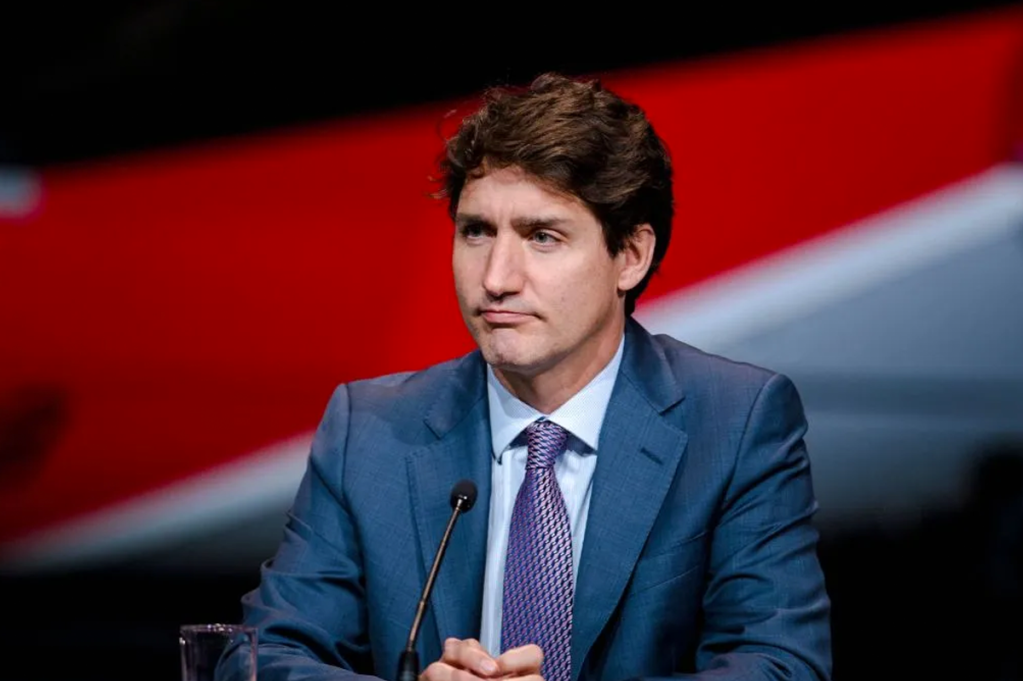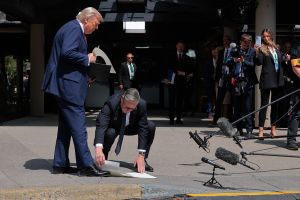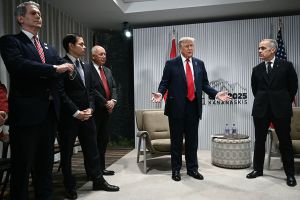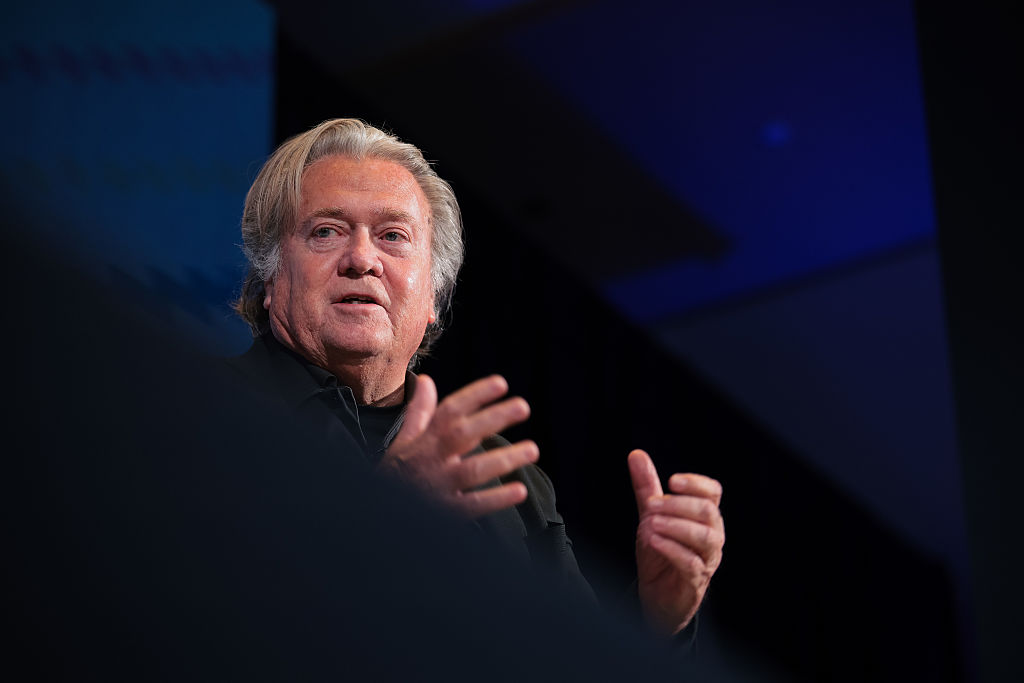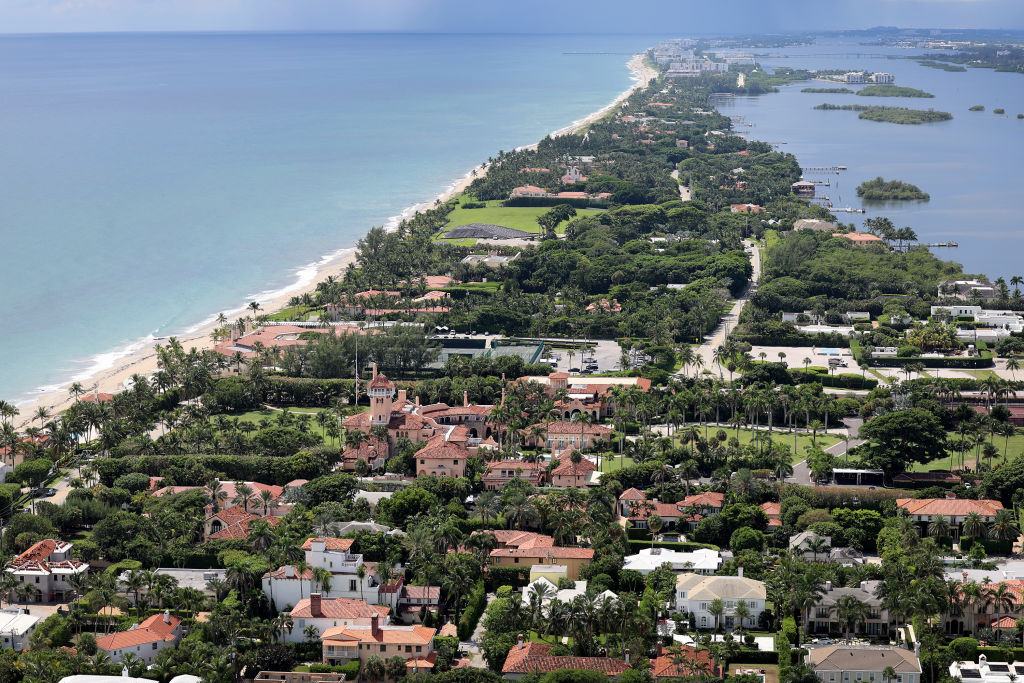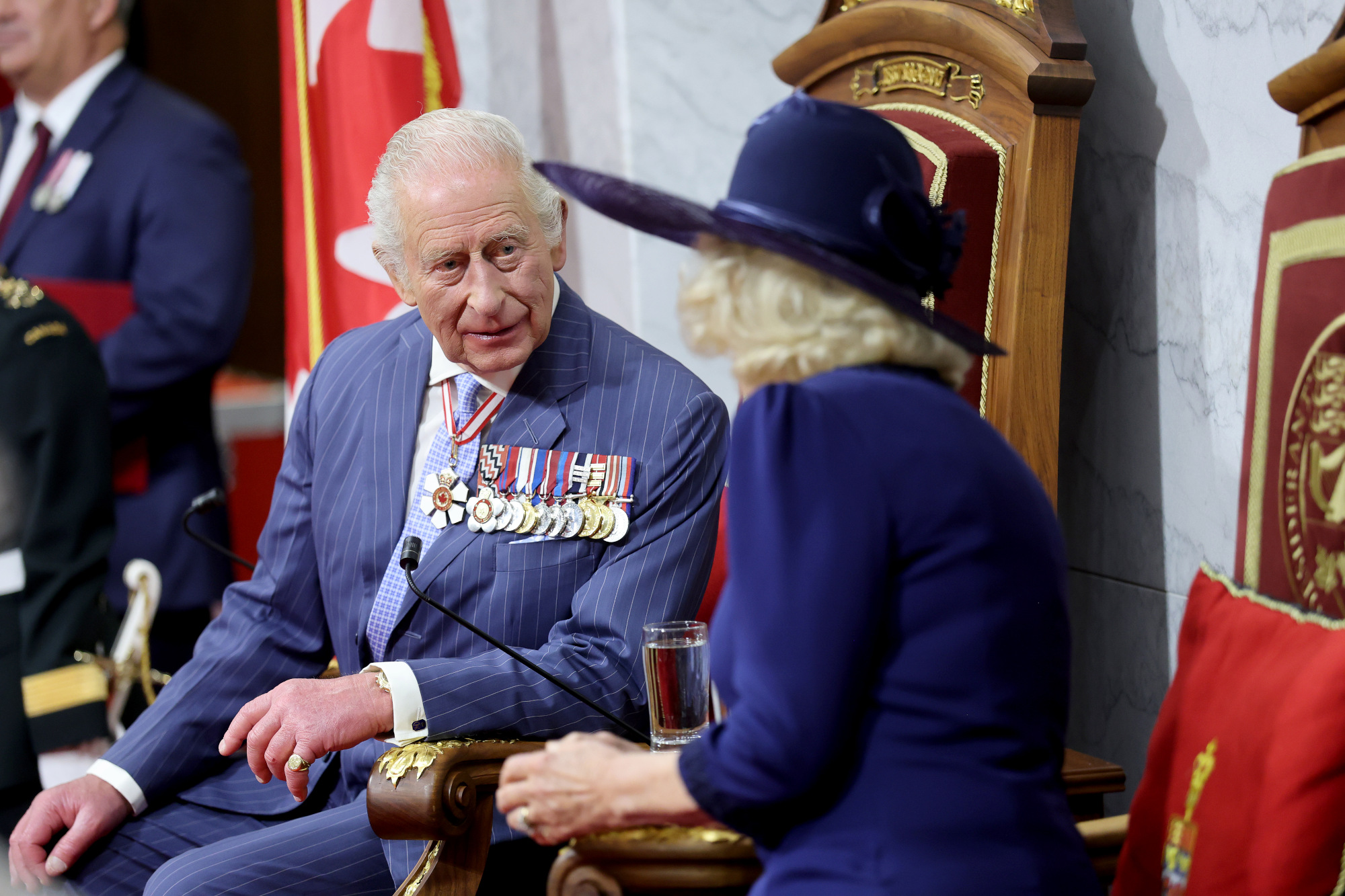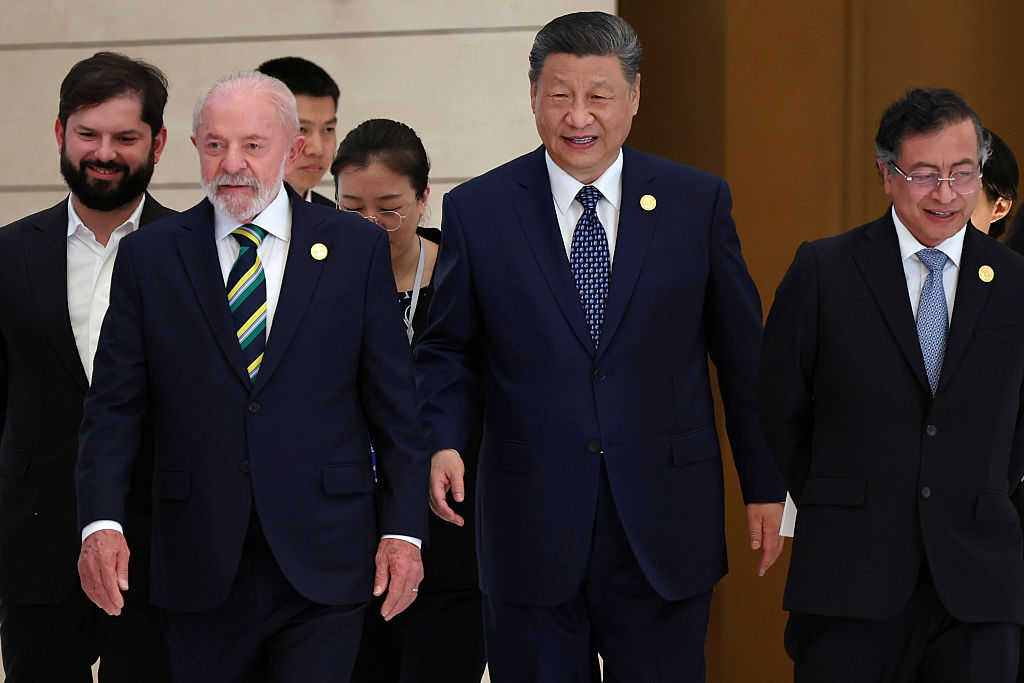Justin Trudeau’s government has been compromised by the Chinese Communist Party and Canada’s democracy is in jeopardy. This is a startling claim, all the more so for the fact that Canadian intelligence officials are the ones making it.
Over the past month, a series of leaks from within CSIS, the Canadian Security Intelligence Service, has stirred up an astonishing storm. In November, it was leaked that a clandestine CCP network had funded and infiltrated the campaigns of eleven candidates in 2019’s federal election.
Trudeau reacted to November’s leak by having his staff tell the press that he had confronted Xi Jinping about the claims at a meeting during the G20 conference in Bali. Extraordinary footage then emerged of Xi accosting Trudeau about the leaks before walking off muttering that the prime minister was “very naive.”
Details of the interference were then murky, but further leaks early last month claimed that Trudeau was in fact briefed about the CCP network — which allegedly involved more than a dozen aides, a standing provincial politician, unelected officials and donors — before the 2019 election and not just after. Intel suggested that large sums changed hands, election law was breached (though there is no police investigation), and Trudeau’s Liberal Party were the beneficiaries.
More CSIS leaks followed through the middle of February. There was CCP interference in 2021’s election, it was claimed, aimed at achieving a Liberal minority government, which was indeed the outcome. Efforts to influence results at a local level included coercing Chinese international students into campaigning in seats with large Chinese-Canadian populations. A surveilled conversation with a Chinese consulate official was quoted directly in documents shown to the Canadian press: “The Liberal Party of Canada is becoming the only party that the PRC [People’s Republic of China] can support.”
Michael Chan, a Liberal kingmaker and fundraising coordinator, was named as a long-running CSIS target. Chan was already known for his public remarks condemning democracy protests in Hong Kong and for his close links to Chinese diplomats. Spooks told the press they had a dossier on Chan and that he had been meeting with suspected Chinese intelligence agents. Chan stated that CSIS had never tried to interview him, but had “conducted intimidating interviews” with his associates. He accused CSIS of “systemic racism” and of fostering “division, hate, and the destabilization of a peaceful, harmonious, vibrantly diverse society.”
Trudeau stood by his administration’s decision to keep it all secret. “It’s certainly a sign,” he announced, “that security within CSIS needs to be reviewed. And I’m expecting CSIS to take the issue very seriously.”
The CSIS leakers, citing “surveillance and wiretap evidence,” struck back by naming a serving Liberal MP whom they claimed was a knowing beneficiary of covert CCP interference. This was Han Dong MP, first elected in 2019 and then re-elected in 2021. Michael Chan, it was alleged, had deposed another candidate, also Chinese Canadian, to secure Dong’s nomination. The two supposedly knew what they were doing but top Liberals allowed Dong to stand in spite of CSIS warnings (both Dong and Chan strongly deny they had any role in CCP interference).
The denial issued by Dong, who missed a parliamentary vote on a motion declaring a genocide in Xinjiang, found space to point out that he represents “racialized and cultural communities.” Trudeau was asked directly in a press conference whether he received the intelligence and, if so, why Dong was allowed to stand in 2019. The PM flailed, speaking instead about the “rise in anti-Asian racism linked to the pandemic.”
Canadians need not worry, Trudeau went on, because a panel of specially appointed civil servants had reviewed interference election attempts in real time and decided there was nothing worth telling. A report on the interference panel’s work would be published imminently. Then came the counterpunch: it was CSIS officials, the PM argued, who were interfering in Canada’s democracy. It was not up to them to decide who could stand as MP.
Incensed, Trudeau’s Conservative opponents took their first serious crack at the scandal. The party released a statement implying that the report on the interference panel was a whitewash. The report was authored by Morris Rosenberg, who served for four years as CEO of the Pierre Elliott Trudeau Foundation, named for Trudeau’s father, the former prime minister. During his tenure, Rosenberg had facilitated the Foundation’s receipt of a $200,000 donation from a CCP official. The same official was also involved in a 2016 cash-for-access scandal whereby Justin Trudeau held a fundraising event for CCP-friendly businesspeople.
The Conservatives cried conflict of interest and claimed the Rosenberg report could not be taken seriously. They were irked too by Trudeau’s use of racism concerns to deflect criticism. It was Chinese Canadian candidates campaigning under their party’s banner who were thought to be the main victims of CCP incursions.
One of them, Kenny Chiu, is particularly important. In 2019, Chiu was elected Conservative MP of a British Columbian constituency in which roughly half of residents are of Chinese origin, defeating a Liberal incumbent whose former law firm had been under investigation by police for links to money laundering by Chinese organised crime groups.
Before losing his seat in 2021, Chiu was known — and sanctioned by China — for his criticism of the CCP. Earlier that year, he had introduced a bill proposing a registry of foreign agents in order to combat election interference and influence peddling.
During Chiu’s 2021 re-election effort, there were many posts published on WeChat — the international version of a Chinese social media app — claiming the bill would lead to the oppression of Chinese Canadians. The posts spread among Chiu’s constituents and were replicated by Chinese state media. Erin O’Toole, Conservative leader during the 2021 campaign, claimed last summer that Chiu was one of as many as nine Conservative MPs he believed had lost their seats because of CCP interference.
The new leaks this month show that some at CSIS agreed with Chiu, but his experience was brushed over by the Rosenberg report, where it was afforded a few lines of basic description at the top of a redacted list of other notes. Chiu has now publicly called on Trudeau to “spare me the racist line and other BS” and provide answers. His former colleague, shadow foreign affairs minister Michael Chong, says the PM cannot be trusted to do so.
Theirs are sentiments echoed by a growing number of community leaders, emboldening a wider fightback. Testimony of intimidation is coming to light, including that of a former candidate who claims a Chinese Canadian he spoke to on the doorstep was afraid that his family in China would suffer if he voted the wrong way.
The leader of one group of Canadian Hongkongers has even raised doubts about donations made by several dozen Chinese Canadians to Trudeau’s own constituency race in Papineau, Québec, in 2015, the year the Liberals entered government. Canadian election filings analyzed by The Spectator show that this group’s contributions amounted to 86 percent of the $236,000 received by the Papineau Liberal association that year.
The pace of the crisis quickened with the Conservative announcement criticising the Rosenberg report. Conservatives questioned the “threshold” used by the interference panel to measure whether interference has had a concrete effect on the election and therefore whether the public should have been informed. The Liberal minister responsible described the threshold as “very high” when announcing the system. The Rosenberg report itself obsesses over the thing, calling it “somewhat confusing” and mentioning it seventy-three times. The leaks, meanwhile, made clear that the interference panel had been briefed at the time about CCP attempts to undermine Chiu’s 2021 campaign, but that his constituents were kept in the dark because the threshold had not been met.
Leakers then shared information indicating that CSIS had direct evidence that the $200,000 donation to the Trudeau Foundation (then led by Rosenberg), a $50,000 donation for a statue of Trudeau senior, and a $750,000 donation to his alma mater, were together part of a CCP operation targeting Trudeau junior. Chinese diplomats had requested the gifts be made and even offered to directly reimburse the donors. The minority Liberal government’s insistence that a public inquiry was not necessary began to look untenable, as Canada’s third- and fourth-largest parties joined the calls for one. The Trudeau Foundation, in which the PM no longer has a formal role, returned the $200,000.
Last Monday, Trudeau responded to calls for a public inquiry by empowering a cross-party panel of MPs to look into election interference, and promising to appoint a “special rapporteur” to decide whether a public inquiry is necessary. Liberal MPs, meanwhile, spent last week filibustering a vote to demand Trudeau’s chief of staff testify on the timeline of her boss’s security briefings, as opponents try to pick holes in his remarkable claim never to have been told about clandestine funding.
The leaks and press investigations have since continued. On Friday, CSIS staff alleged that Vincent Ke, a serving MP in Ontatio’s provincial government, received covert funding from Toronto’s Chinese consulate. Ke said it was false and defamatory and resigned. There is ongoing interest in donations to Trudeau’s Papineau Liberal Association, after one paper highlighted a donation by a former People’s Liberation Army soldier investigated for money laundering (the individual denies any link to money laundering and says he is not aware of any police investigation into his actions). It may yet emerge that Trudeau’s own race was the subject of substantial financial interference in 2016.
The story may roll on and faulty intelligence may be mixed up in it, but public trust has already been battered. Polls conducted before the Dong revelations suggested that most Canadians had then already decided not enough was being done to stop interference. Nearly half of Liberal voters think Trudeau is afraid to stand up to China.
There are those who bemoan declining trust in our leaders. Here we see the damage that can be done by a leader who does not trust the public. Trudeau did not trust Canadians to know that the CCP may have forked out $1 million in an effort to gain his affection; that Canadian security officials believe a serving MP is a tool of Beijing; or that Canadian voters of Chinese descent feel intimidated by the CCP in their own country; or that visiting Chinese students were allegedly told by the Chinese embassy to go out and campaign for his party or be sent home for punishment.
If you believe that public information is the best guard against an interference campaign that extends to the grassroots, then this distrust is nothing but inexcusable. The same habit runs through Trudeau’s proposed solutions. From the panel of civil servants, to the Rosenberg fiasco, to the “rapporteur,” to the filibustering — the prime minister’s instinct is to exclude outside scrutiny. No wonder: it is increasingly apparent that his government has worked to conceal the fact that the Liberals have received covert CCP support during the last two elections. Exposed, the excuse has been to cry racism and to say this interference was inconsequential.
“Whistleblowers in Canadian intelligence have risked prosecution,” says Sam Cooper, who broke many of the stories, “because they believe Canada’s democracy faces severe and increasing threats, but the public has been kept in the dark and Ottawa isn’t acting. It’s fair to say Canada has never seen revelations of foreign interference like this before, or in this way.”
This article was originally published on The Spectator’s UK website.



